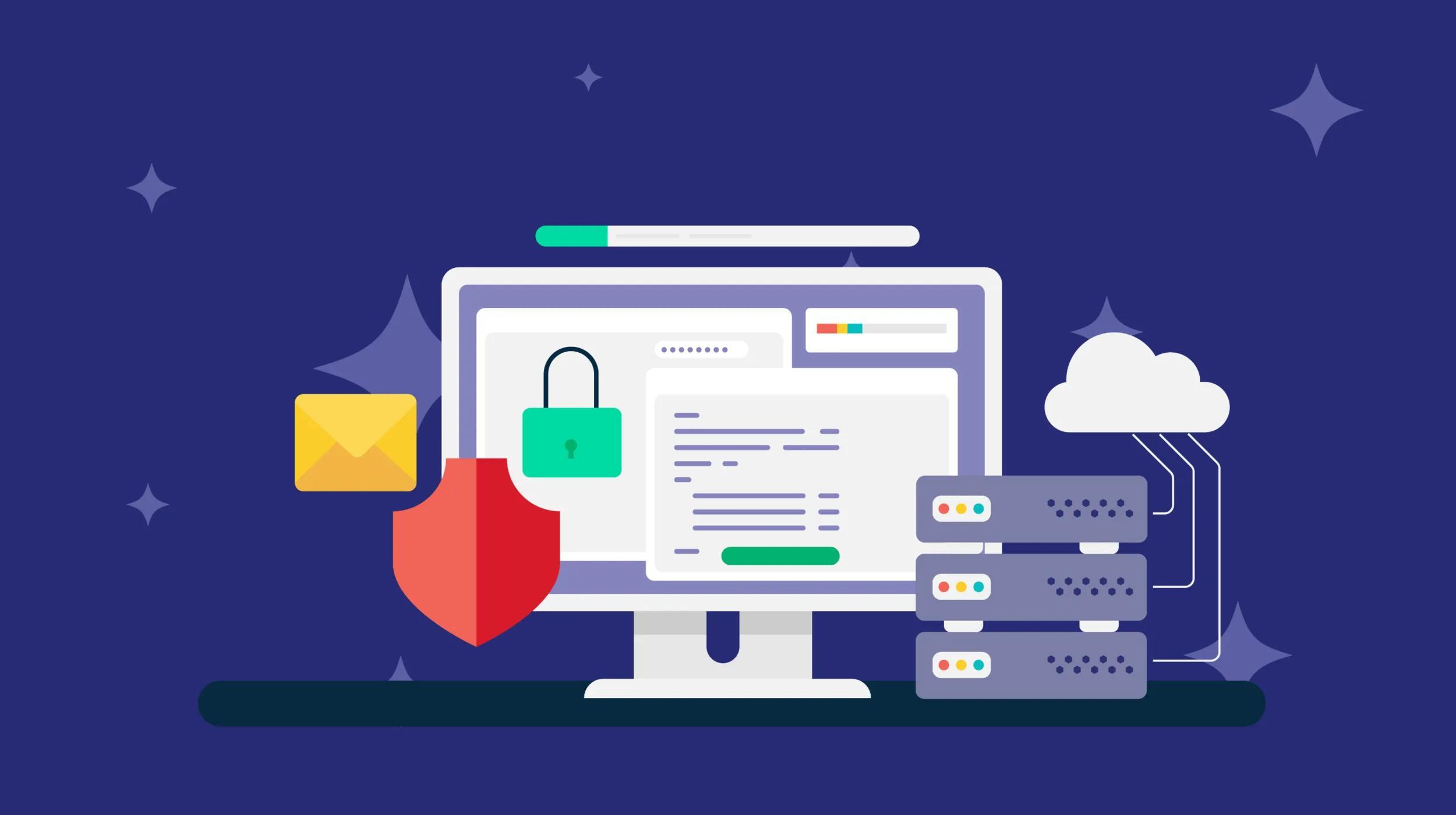The first hurdle in making your business dreams a reality is figuring out how to get a loan to start a business. Many would-be business owners come face to face with a difficult reality: business loans are hard to come by.
For example, Bank of America requires at least two years in operation and annual revenues of $250,000 — and most other big banks aren’t much different.
The road to financing for your business endeavor is fraught with pitfalls.
It’s important to empower yourself with relevant information, like what to avoid when you apply for a small business loan and how to find other funding options for your business.
Launch your business in minutes with GoDaddy Airo™
Exploring alternatives to traditional business loans

Traditional business loans are for operations that have already demonstrated profitability and are seeking additional funds in order to take the next step.
For a startup company that doesn’t have much of a track record, it’s important to consider other lending options. Let’s take a look at some of the best alternatives to traditional banks:
Online lenders
With banks and credit unions cutting down on the number of business loans they issue, online lenders have stepped up to fill in the gap.
These lenders have simpler application processes, lower minimum requirements, and faster funding times. Many of the best online lenders are peer-to-peer lenders, which means third-party investors fund the loans.
Pros:
- Quick, convenient application process
- High approval rates (more accessible for startups)
- May not require collateral for approval
- Flexible repayment terms and options
Cons:
- Interest rates tend to be higher than traditional loans
- Need to be careful of hidden fees
- Limited regulatory oversight (higher risk of predatory lending practices)
- May require frequent (e.g., weekly) repayments, straining cash flow
Online Lenders to Consider:
- Funding Circle - No minimum revenue requirements, although you do need a business history of at least two years.
- StreetShares - Requires an annual revenue of at least $25,000 and a business history of one year, although it will occasionally approve businesses that have been around for only six months.
- LendingClub – Must be based in the United States and in business at least 12 months or more plus annual sales of at least $50,000.
The amount you can borrow and the interest rate will vary heavily depending on the lender, so it’s a good idea to shop around.
The best online lenders will have interest rates that are only a few points higher than a bank loan.
Personal loans
The main stumbling block with getting a startup loan is that lenders are evaluating the creditworthiness of both you and your business.
Approval is unlikely for a business that has yet to make money. You can get around that issue by applying for a personal loan to start your business, using your own credit score and income to receive approval for a loan.
Pros:
- No need to share info about business profits
- May offer more favorable terms for borrowers with strong credit
- Funds can be used for various business purposes
Cons:
- Puts personal assets and credit at risk
- Limited borrowing capacity (depends on personal financial situation)
- Interest rates may be higher than traditional business loans
Personal Loans to Consider:
- Citizens Bank - offers personal loans to borrowers with an annual income of at least $24,000.
- SoFi - offers personal loans between the amounts of $5,000 and $100,000.
Just like with online lenders, it’s always a good idea to shop around. Check with your own bank or credit union first. Personal loans function similarly to business loans, which means interest rates are low and terms can last several years.
Loans through the Small Business Administration (SBA)
The SBA partially guarantees loans through its network of lenders, so SBA lenders take on less risk when they approve applicants.
A range of amounts are available, from microloans that max out at $50,000 to 7(a) loans that can be up to $5 million. Terms last up to 25 years, interest rates are low, and there are no minimum revenue requirements.
Pros:
- Lower interest rates and longer repayment terms
- Government-backed
- Startup businesses can apply
- Funds can be used for wide range of reasons, including working capital, equipment, and more
Cons:
- Lengthy application process
- Strict eligibility requirements
- SBA Guarantee Fee adds to overall loan cost
- Limited funds available and subject to budget allocations
When you’re looking for a loan through the SBA, be prepared to present quite a bit of paperwork and information about your business. The entire application process may take months, so this isn’t quick cash. However, the favorable terms make these loans worth the wait.
Where to start with an SBA loan:
Business credit cards
Getting a business line of credit isn’t technically a loan, but it’s a solid short-term financing option that you should consider — even if you aren’t figuring out how to get a loan to start a business.
The reason for that is the rewards. Some of the top small business credit cards can earn you over $1,000 each year in cash back or reward points. Even if you get a loan, you can still utilize a business credit card, and then pay it off with that loan to make more money back.
For financing, look for credit cards with an introductory zero-percent annual percentage rate (APR).
You’ll have a revolving line of credit you can use interest-free for the introductory period. Just make sure you pay everything off before that period ends and keep up with regular payments on the card.
You want your business to earn a good credit score through this approach – not be harmed by bad credit, which will make getting future loans even more difficult.
Pros:
- Convenient, flexible line of credit for day-to-day expenses
- Typically offers rewards or cashback
- No need to provide collateral or personal guarantee for approval
- Can help build good business credit, if used responsibly
Cons:
- Higher interest rates than more traditional loans
- May have annual fees or other charges
- Overspending can lead to debt accumulation
- Cardholder assumes personal liability for credit card debt
Business credit cards to consider:
Offers around credit cards are constantly changing, so we recommend you check out sites that compile some of the latest offers. You can do a quick Google search or check out the below to start:
Prepare the required documentation

With any lender – whether traditional, online, or through the SBA – it helps to come to the table already prepared. If you know you want to get a loan, gathering the below information can strengthen your application.
Reason for financing
Whether you are planning to use the loan for equipment, day-to-day operations, or just general cash flow to start the business, you need to be specific about how you are going to use the loan.
Some loans may have restrictions about use of funds, so your plans for the money will determine your eligibility.
Loan amount needed
Be as precise as possible in estimating how much money you need to borrow and show that your numbers are based on real-world information. For example, include quotes from vendors for equipment you need or the cost of marketing spaces that you plan to advertise on.
General business & financial information
The main documentation you’ll want to present includes:
- Your name and Social Security Number (SSN)
- Information about the business (licenses; articles of incorporation; business tax ID; etc.)
- Financial statements (e.g., cash flow statements; bank statements; balance sheet; etc.)
- Tax returns (both personal and business)
- Business plan
- Expense sheet
- Current annual revenue
- Financial projections for the next 5 years
- Information about the owners and any collateral
How to improve your chances of getting approved

There’s a considerable amount of work involved in applying for any type of loan, so of course you want to do everything possible to improve your likelihood of getting approved.
Even if you’re not looking for funding right now, it can be beneficial to go ahead and work on your credit score, create a business plan, and identify potential collateral, so that any future loan application is as robust as possible.
Let’s take a look at each of these areas:
Work on improving your personal & business credit score
Establishing a strong credit history requires time, so you need to start now (if you haven’t already). You typically need a credit score of 720 or higher to qualify for the lowest interest rate on a loan.
Otherwise, you’re giving money away with the extra interest you’ll pay. All it takes to build an excellent credit score is the right financial habits, which you’ll need anyway if you’re going to launch your own business.
Create a strong business plan
A thorough business plan is the first step in launching a business. Writing your business plan can help you organize your thoughts and chart a better course for success.
Not only will it make your business more likely to succeed, but it’s also something many lenders will want to review when you apply for a loan. Evidence you’re serious about success, such as an eye-catching website, can really help here.
Identify loan collateral & business assets
Although there are many financing options available, remember that you’ll need to put your own money and assets on the line, as well.
When you’re applying for large business loans, the lender will want to know how much of your money you’ve already used to fund your business, as well as any personal or business collateral you can offer.
Depending on the type of loan or line of credit, assets can range from cash and investments (stocks, bonds, etc.) to real estate and equipment.
Reviewing your loan agreements & choosing the best loan for your business

If you're a startup, you may feel that you need to accept money from any financial institution that approves your application.
However, before you make any loan official, it's important to determine that the loan works for your business and for your long-term goals - and not just the lender. Consider the below when reviewing different loan offers:
- Lender's Reputation – Research the reputation and track record of the lender or credit card issuer, including customer reviews and complaints.
- Customer Support – See what people have to say about the quality of customer support and their responsiveness to inquiries or issues.
- Fees – Review any fees listed in the loan documentation. Some typical fees include application fees, origination fees, annual fees, or late payment fees. All of these can easily add to the overall cost of your loan.
- Repayment Schedule - Understand the repayment schedule – whether it's weekly, bi-weekly or monthly – and how it aligns with your business's cash flow. Consider if the lender offers flexibility in adjusting repayment terms in case of financial fluctuations.
- Prepayment penalties - Find out if there are penalties for repaying the loan early, as this can affect your cost of borrowing.
The final step: Securing your small business financing

At this point, we’ve reviewed some of the main things entrepreneurs and small business owners should consider when looking to secure a loan. You should now know about:
- Alternatives to traditional business lenders
- Required documentation
- Improving your chances of approval
- Reviewing the terms of your loan agreement
With this knowledge in mind, you are ready to start looking at different lenders and applying for different types of business loans and financing.
The required documentation might vary slightly from one lender to another, but if you have the main documents ready to go, you’ll be in good condition to get a great loan for your business.
As you go through the process, always prioritize your business needs.
If a particular financing option doesn’t seem like a good fit, move on to something that makes more sense for your business. If you’re still hesitant about taking on debt for your startup, you could also check out our guide for applying to a small business grant.







